Industry information
Company News
- Aluminum veneer curtain wall, the fashionable outerwear of modern architecture
- Aluminum veneer: the fashionable "new favorite" in modern architecture
- Aluminum veneer: the 'invisible hero' of modern architecture
- Aluminum veneer curtain wall, the fashionable coat of architecture
- Aluminum veneer customization, creating a new trend of personalized space!
Industry dynamics
- High performance application of special-shaped roller coated aluminum veneer
- Aluminum veneer curtain wall: the beauty of architecture, details can be seen in the real chapter
- Aluminum curtain wall: the fashionable coat of modern architecture
- Unveiling the "Appearance" and "Strength" of Aluminum Veneers for Curtain Walls
- Aluminum veneer curtain wall: the fashionable coat of modern architecture
Frequently asked questions
- Can aluminum veneer be applied to the exterior renovation of historical buildings?
- What is the color stability of aluminum veneer?
- What impact does the thickness of aluminum veneer have on architectural design?
- Can the insulation function of aluminum veneer save energy?
- What is the thermal expansion coefficient of aluminum veneer?
contact us
Mobile:+86 15627778610
Email: 2201229786
Address: No. 5 Binjiang Road, High tech Zone, Zhaoqing City, Guangdong Province
What are the advantages and disadvantages of aluminum veneer compared to composite panel exterior walls?
- Author: Xinlongtai Aluminum Industry (Guangdong) Co., Ltd
- Release time: February 28, 2025 22:48:22
- Click:0

Aluminum veneerComposite panels are currently two common exterior wall decoration materials on the market. They each have their own advantages and disadvantages. Let's take a detailed look at the advantages and disadvantages of aluminum veneer compared to composite panel exterior walls.
1、 The advantages of aluminum veneer
1. Lightweight: Aluminum veneer is relatively lightweight, which can reduce the weight of buildings and lower their energy consumption.
2. Corrosion resistance: Aluminum veneer has good corrosion resistance, which can effectively prevent corrosion and oxidation, and extend the service life of buildings.
3. Good thermal insulation performance: Aluminum veneer has good thermal insulation performance, which can effectively prevent heat transfer and improve the insulation performance of buildings.
4. Strong plasticity: Aluminum veneer can be processed through cutting, carving, and other methods to form various shapes and patterns, thus meeting different architectural design needs.
5. Easy to clean and maintain: The surface of aluminum veneer is flat and smooth, easy to clean and maintain, which can keep the building clean and beautiful.
2、 Disadvantages of aluminum veneer
1. The decorative effect is not as good as other materials: Compared to other materials, the decorative effect of aluminum veneer is relatively weak, making it difficult to create a luxurious, stable and atmospheric visual effect.
2. Poor anti slip performance: The anti slip performance of aluminum veneer is relatively poor, which is prone to safety hazards such as water accumulation and slipping.
3、 Advantages of composite panels
1. Good decorative effect: Composite panels can be processed according to different design requirements to form various shapes and patterns, thus meeting different architectural appearance design needs.
2. Good moisture resistance: Composite panels have good moisture resistance and can effectively prevent the impact of humid environments on buildings.
3. Strong durability: The composite board has undergone special treatment, which can effectively improve its durability and weather resistance.
4. Easy installation: Composite panels can be installed through a keel system, making installation convenient and fast.
4、 Disadvantages of composite panels
1. Heavy weight: Composite panels are heavy and difficult to construct due to the use of multiple materials.
2. Poor fire resistance: Composite panels are usually composed of multiple materials, some of which may have poor fire resistance.
5、 Comparison between aluminum veneer and composite panel exterior walls
Aluminum veneer and composite panels each have their own advantages and disadvantages, and the choice of material should be comprehensively considered based on specific circumstances. Here is their comparison:
1. Decorative effect: Composite panels have a better decorative effect and can meet more design needs; The decorative effect of aluminum veneer is relatively weak.
2. Moisture resistance: Composite panels have good moisture resistance and can effectively prevent the impact of humid environments on buildings; However, the moisture resistance of aluminum veneer is relatively poor.
3. Installation difficulty: Composite panels are difficult to install due to the use of multiple materials; Aluminum veneer can be installed through a simple installation method.
4. Fire resistance: Composite panels are usually composed of multiple materials, some of which may have poor fire resistance; Aluminum veneer has good fire resistance.
6、 Precautions
When using aluminum veneer or composite panels for architectural exterior design, the following points should be noted:
1. Strictly follow the design requirements for construction, ensuring that the connection between the aluminum veneer or composite panel and the building structure is firm and reliable.
2. Strengthen management to prevent human destruction and damage to the surface of materials.
In areas with frequent earthquakes, corresponding seismic measures should be taken according to the actual situation, such as strengthening reinforced concrete structures.
4. Ensure a hygienic environment: When selecting aluminum veneer or composite panels, attention should be paid to their antibacterial and anti mold properties.

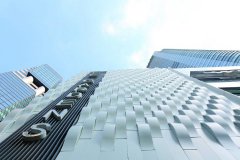
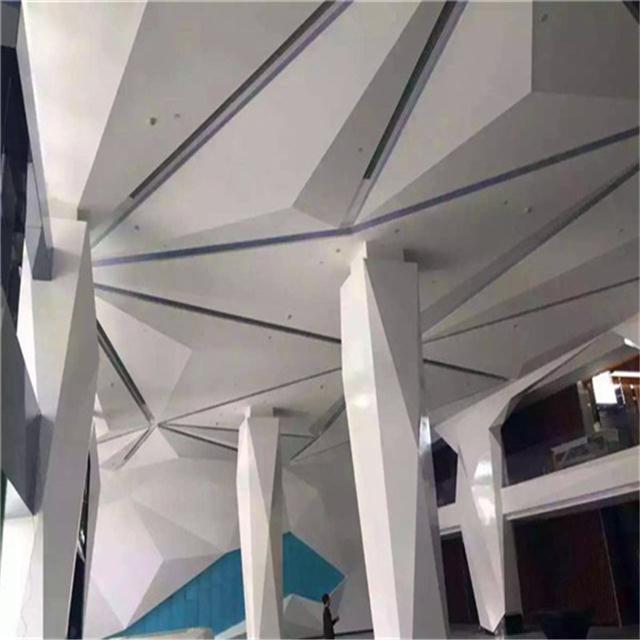
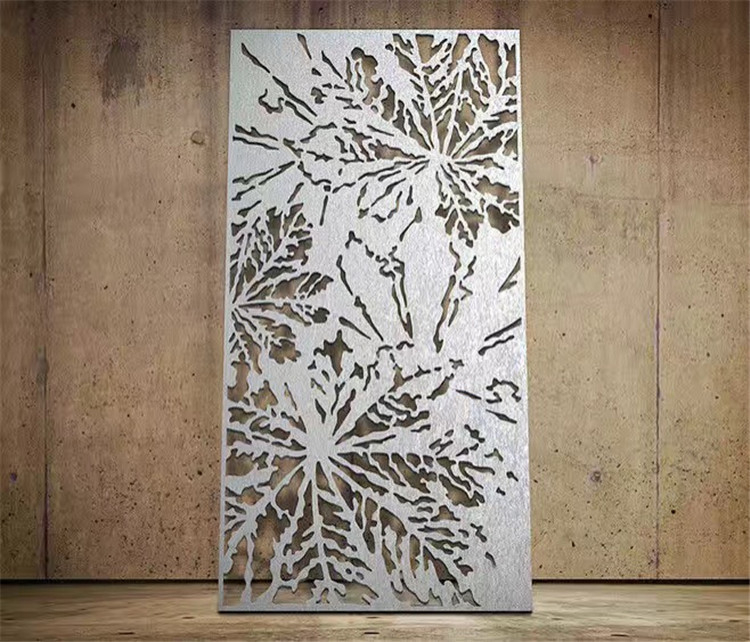
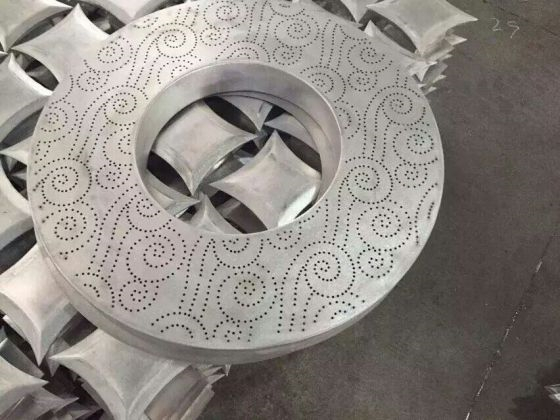
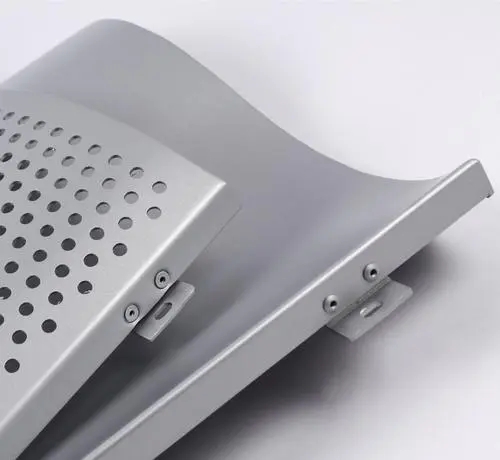
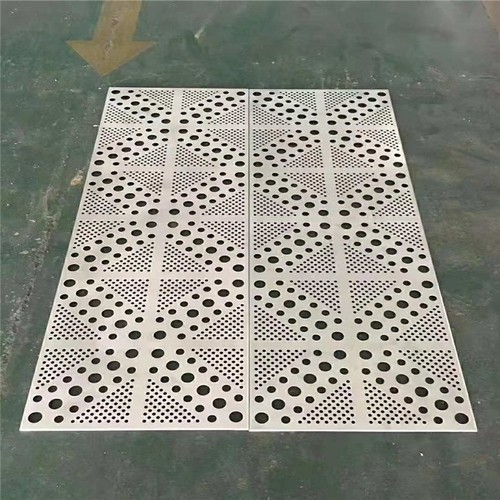
 Customer service QQ
Customer service QQ